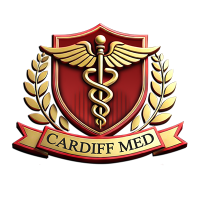Gastroenterology MSc
Specialize in fertility and hormonal health. Master PCOS and male reproductive disorders through a flexible, evidence-based online framework.
Overview
In an era where reproductive health challenges are becoming increasingly complex, there is a significant gap in specialised clinical knowledge at the primary care level. Our MSc in Sexual and Reproductive Medicine is a high-level academic programme designed to equip healthcare professionals with the expertise required to manage these evolving needs.
Statistical data suggest that approximately 10% of couples seeking to conceive present fertility concerns to primary care providers. With the rising prevalence of conditions such as Endometriosis and Polycystic ovarian syndrome (PCOS) in women, alongside increasing cases of low testosterone and erectile dysfunction in men, the demand for practitioners with advanced training in reproductive medicine has never been higher.
Academic Fee for Year 2026 MSC Diploma £10,200 , M.Sc + GST. Interest-free monthly instalment plans are available to spread the cost over the course duration.
Year 1: Core Clinical Modules
A deep dive into the biological foundations and fertility.
Addressing the physiological and psychological aspects of sexual health.
Clinical pathways for the diagnosis and therapeutic management of male fertility challenges.
Mastery in the treatment of multifaceted reproductive conditions, including Polycystic Ovary Syndrome and endometriosis.
A comprehensive look at IVF management, specialist reproductive technologies, and the ethical considerations of patient care.
Practical approaches to primary care consultations.
Year 2: Research & Mastery (MSc Stage)
A Year 2 independent research project allowing you to explore a specialised endocrine topic in-depth and contribute original data to the field.
Research Methodologies & Critical Appraisal
Research Methodologies & Critical Appraisal
Professional Project (Dissertation)
An independent, 10,500-word research project on a topic of your choice within reproductive medicine.
Why Study With Us?
Eligibility & Admissions
We welcome applications from registered healthcare professionals, including Doctors (MBBS), Nurses, Midwives, Pharmacists, and other suitably qualified practitioners.
Requirements:
- A primary degree in a relevant healthcare field.
- Updated CV (with chronological education and clinical experience).
- Personal Statement detailing your motivation for the course.
- Language Requirements: An IELTS score of 6.0 is the standard requirement. However, this may be waived if you provide an English Proficiency Letter from your previous institution, confirming that your degree was taught and assessed entirely in English.
FAQ's
Our FAQ section provides clear answers to the most common questions about our MSC Programs, processes, and policies, helping you find information quickly and easily.
Yes. The MSc is validated and awarded by the University of South Wales, a recognised UK institution, ensuring global academic standing.
The Postgraduate Diploma takes 12 months, while the full MSc is a 2-year, part-time programme
No. The programme is 100% online. All lectures, discussions, and assessments are conducted through our virtual learning platform.
Registered healthcare professionals, including GPs, specialist doctors, nurses, and pharmacists with a relevant undergraduate degree.
An IELTS score of 6.0 is the standard requirement. However, this may be waived if you provide an English Proficiency Letter from your previous institution, confirming that your degree was taught and assessed entirely in English
Yes. We offer interest-free monthly payment plans to help spread the cost of the programme over its duration
This is an academic qualification designed to enhance your clinical expertise. Professional registration/licensing is subject to GMC or local regulatory body requirements.
The second year consists of a module on Research Methodologies and the completion of a Professional Project (Dissertation).














